Pau Gorostiza
Group leader
IBEC participates in European Project developing new technologies for the study and treatment of neurological diseases
Pau Gorostiza and his team at IBEC participates in the DEEPER project which aims at creating new tools for accessing the deep brain with unprecedented precision for the study and treatment of neurological diseases. The project involves 12 partners in 8 countries, and it has been funded by the European Union with approximately 5.7 million euros for the next 4 years.
New molecules developed in IBEC allow dilating the pupil with light
A study led by researchers from the ‘Nanoprobes and Nanoswitches’ Group of the Institute for Bioingeniería of Catalunya (IBEC) shows, for the first time, that the receptor proteins that control processes such as the pupil reaction can be regulated by light and new chemical compounds called “Adrenoswitches”.
IBEC contributes to multi-disciplinary efforts to understand the brain and improve neurological healthcare
The Group of Pau Gorostiza at IBEC participates in the “Emerging Cluster of the Human Brain! (CECH) RIS3CAT Initiative, in which research institutes and industry work together to achieve an integrative and multi-level understanding of the human brain.
Lights, Cells, Action! IBEC develops small molecules able to control endocytosis with light
IBEC’s research group “Nanoprobes and nanoswitches” creates a system based on light to inhibit the endocytocis and control its spatio-temporal dynamics. The newly developed light-sensitive small-molecule inhibitors of endocytosis (called dynazos) are water-soluble, cell permeable, photostable, and enable fast photoswitchable inhibition of endocytosis. This technology will allow more accurate and controlled studies were endocytosis is crucial, as in cellular grow, differentiation and motility.
New chemical lego blocks for health solutions
 IBEC researchers develop new multi-responsive molecules able to self-assemble in water forming fiber-like structures. The so-called discotic molecules show responsiveness to temperature, light, pH, and ionic strength and they might show great potential for medical applications such as drug delivery systems, diagnosis or tissue engineering.
IBEC researchers develop new multi-responsive molecules able to self-assemble in water forming fiber-like structures. The so-called discotic molecules show responsiveness to temperature, light, pH, and ionic strength and they might show great potential for medical applications such as drug delivery systems, diagnosis or tissue engineering.
Edgar Fuentes is a PhD student in the Nanoscopy for Nanomedicine Group led by Lorenzo Albertazzi at the Institute for Bioengineering of Catalonia (IBEC). Within this group, Edgar and his colleagues focus on the synthesis of novel smart supramolecular materials for drug delivery.
Can a light sensitive drug restore vision? Pau Gorostiza on BigVang
 “We have achieved that blind fish recover their vision by adding a light-sensitive molecule to the tank’s water that has a pharmacological effect on their retina, ”explains Pau Gorostiza, ICREA researcher at IBEC, who has been working on the development of light regulated drugs for more than ten years.
“We have achieved that blind fish recover their vision by adding a light-sensitive molecule to the tank’s water that has a pharmacological effect on their retina, ”explains Pau Gorostiza, ICREA researcher at IBEC, who has been working on the development of light regulated drugs for more than ten years.
Rossella Castagna, postdoctoral researcher at IBEC wins the ISOP2019 prize
 Rossella Castagna a postdoctoral researcher in the Nanoprobes and Nanowitches group at IBEC was awared with the ISOP2019 prize last week 9th International Symposium on Photochromism held in Paris. This recognition comes from her contribution to the field of photochromism and for the results that were collectively obtained in their group in the field of photopharmacology.
Rossella Castagna a postdoctoral researcher in the Nanoprobes and Nanowitches group at IBEC was awared with the ISOP2019 prize last week 9th International Symposium on Photochromism held in Paris. This recognition comes from her contribution to the field of photochromism and for the results that were collectively obtained in their group in the field of photopharmacology.
Rossella presented the group results on photoswitchable drugs at the reference international meeting for photochromism, held every 3 years, where she was awarded with the conference prize. According to the organizing committee, such a prize rewards the most talented young researchers whose contribution is expected to notably impact the field of photochromism.
Three researchers from IBEC awarded with grants from “la Caixa” for their pioneering and high social impact research
José Antonio del Río, Pau Gorostiza, and Samuel Sánchez have been awarded in two of the “la Caixa” calls.
José Antonio del Río, principal investigator of the Molecular and Cellular Neurobiotechnology Group at IBEC, is one of the winners of the second edition of the call for applications in biomedicine and health. Del Río’s project focuses on analysing the molecular mechanisms involved in the genesis and propagation of tau protein in brain cells. This protein is linked with several neurodegenerative processes and is present in numerous diseases such as Alzheimer’s.
Pau Gorostiza, principal investigator of the Nanoprobes and Nanoswitches Group, also received an award at the second edition of the call for applications for research projects in biomedicine and health. In this case, for his project on degenerative eye conditions such as retinitis pigmentosa, which causes blindness due to the progressive degeneration of the cones and rods, which are the light sensitive cells.
Closer to a functional atlas of the brain
 Scientists from the Institute for Bioengineering of Catalonia develop a technique that enables them to work out the specific function of a neuronal receptor according to its location in the brain. The study, published in PNAS, is based on the activation of photoswitchable drugs with micrometric precision and offers new opportunities in neurobiology.
Scientists from the Institute for Bioengineering of Catalonia develop a technique that enables them to work out the specific function of a neuronal receptor according to its location in the brain. The study, published in PNAS, is based on the activation of photoswitchable drugs with micrometric precision and offers new opportunities in neurobiology.
Schizophrenia, depression, myasthenia… Many neurological diseases are due to the malfunctioning of a neuronal receptor. These proteins, also known as neuroreceptors, are responsible for sending and detecting neurotransmitters, chemical substances that allow communication between neurons.

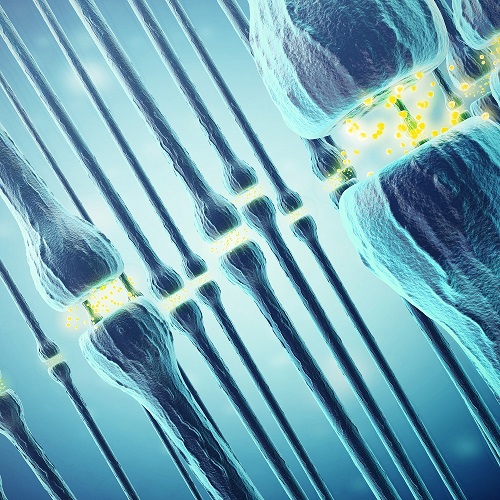

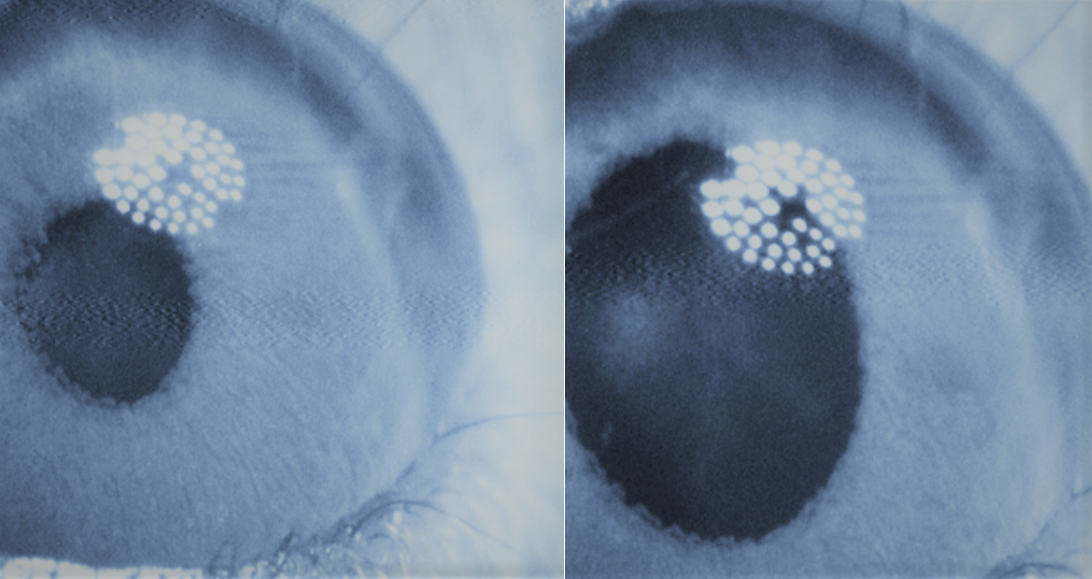

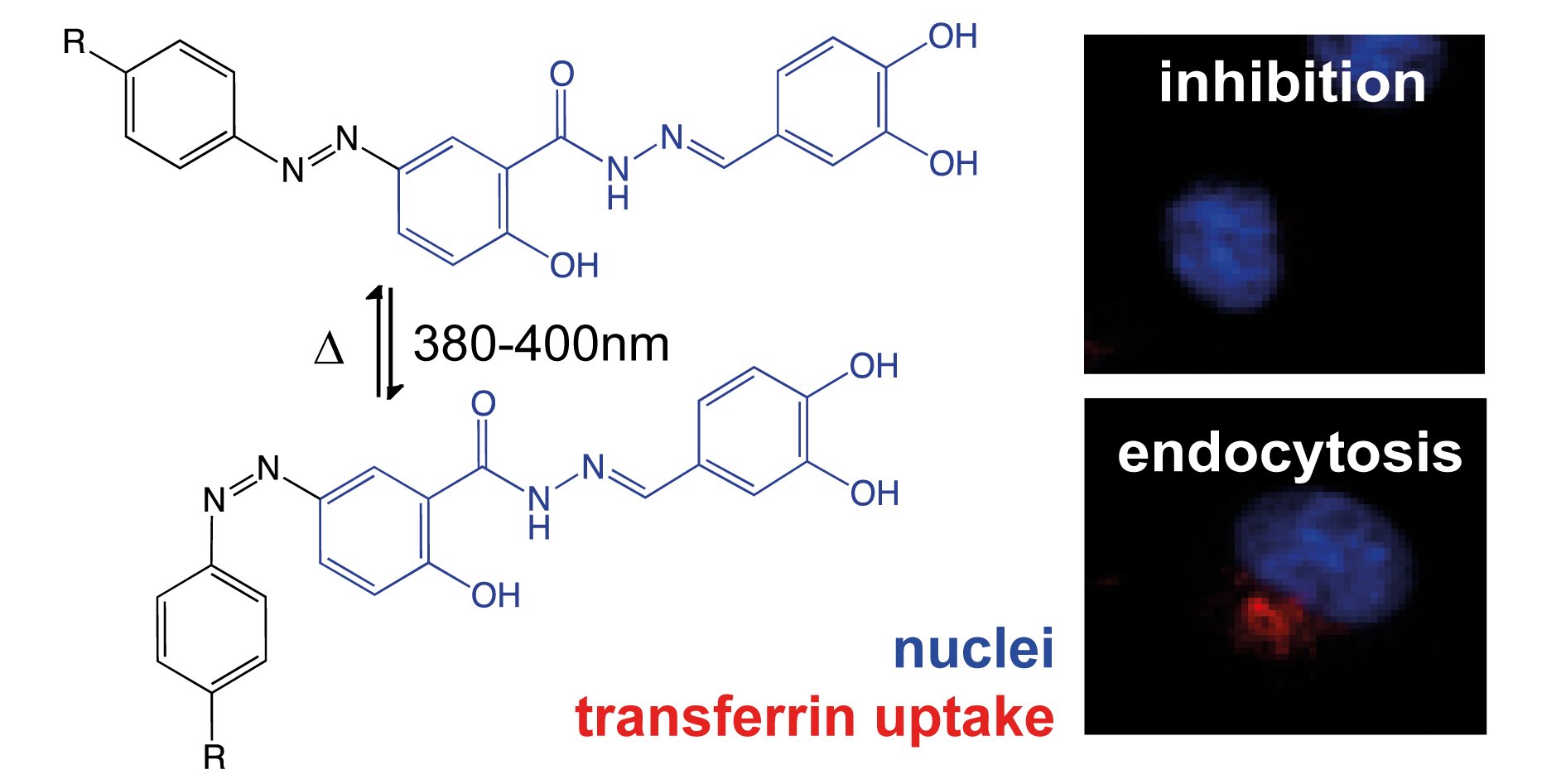
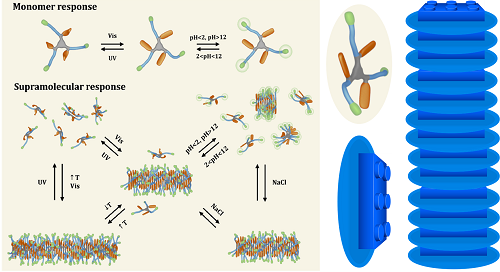
 IBEC researchers develop new multi-responsive molecules able to self-assemble in water forming fiber-like structures. The so-called discotic molecules show responsiveness to temperature, light, pH, and ionic strength and they might show great potential for medical applications such as drug delivery systems, diagnosis or tissue engineering.
IBEC researchers develop new multi-responsive molecules able to self-assemble in water forming fiber-like structures. The so-called discotic molecules show responsiveness to temperature, light, pH, and ionic strength and they might show great potential for medical applications such as drug delivery systems, diagnosis or tissue engineering.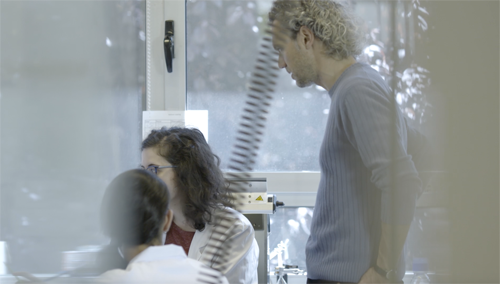
 “We have achieved that blind fish recover their vision by adding a light-sensitive molecule to the tank’s water that has a pharmacological effect on their retina, ”explains Pau Gorostiza, ICREA researcher at IBEC, who has been working on the development of light regulated drugs for more than ten years.
“We have achieved that blind fish recover their vision by adding a light-sensitive molecule to the tank’s water that has a pharmacological effect on their retina, ”explains Pau Gorostiza, ICREA researcher at IBEC, who has been working on the development of light regulated drugs for more than ten years.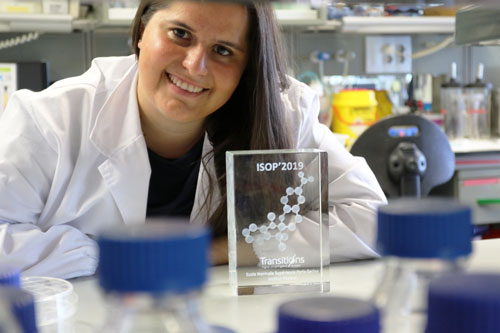
 Rossella Castagna a postdoctoral researcher in the Nanoprobes and Nanowitches group at IBEC was awared with the ISOP2019 prize last week 9th International Symposium on Photochromism held in Paris. This recognition comes from her contribution to the field of photochromism and for the results that were collectively obtained in their group in the field of photopharmacology.
Rossella Castagna a postdoctoral researcher in the Nanoprobes and Nanowitches group at IBEC was awared with the ISOP2019 prize last week 9th International Symposium on Photochromism held in Paris. This recognition comes from her contribution to the field of photochromism and for the results that were collectively obtained in their group in the field of photopharmacology.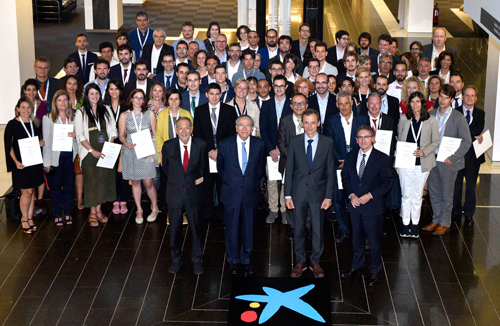
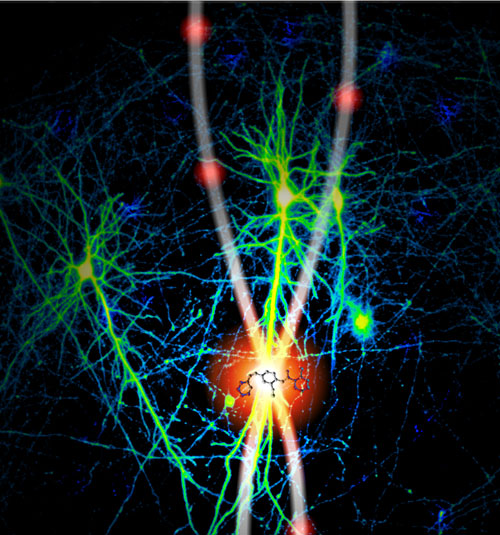
 Scientists from the Institute for Bioengineering of Catalonia develop a technique that enables them to work out the specific function of a neuronal receptor according to its location in the brain. The study, published in PNAS, is based on the activation of photoswitchable drugs with micrometric precision and offers new opportunities in neurobiology.
Scientists from the Institute for Bioengineering of Catalonia develop a technique that enables them to work out the specific function of a neuronal receptor according to its location in the brain. The study, published in PNAS, is based on the activation of photoswitchable drugs with micrometric precision and offers new opportunities in neurobiology.